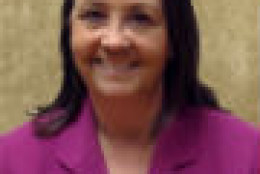whistleblower
-
The Supreme Court ruled Wednesday that a former air marshal who was fired after leaking plans to the media about security cutbacks can seek whistleblower protection.
January 21, 2015 -
Veterans Affairs whistleblowers reclaimed their jobs and reputations after supervisors tried to downplay claims of falsified performance reports, a delayed response to rape allegations against a VA employee and low staffing levels at VA medical centers.
January 20, 2015 -
Three whistleblowers at the Veterans Affairs Department are the "Public Servants of the Year." The Office of Special Counsel awarded the employees, all doctors, with the distinction. Special Counsel Carolyn Lerner said, "because of these doctors' efforts, veterans are now far more likely to receive the treatment they deserve." Federal News Radio's Emily Kopp was at the ceremony and joined Tom Temin on the Federal Drive to discuss their story.
December 04, 2014 -
Before receiving their Public Servant of the Year awards, each whistleblower told stories of outrage and frustration, scattered with doses of faith and black humor.
December 03, 2014 -
The Supreme Court is set to hear the case of a former Federal Air Marshal turned whistleblower on Nov. 4. Robert MacLean was fired after he told the media about the Transportation Security Administration's decision to use fewer air marshals on long distance flights. This is the first case the Supreme Court will hear that directly involves a federal whistleblower. Matt Tully, founding partner of the law firm Tully Rinckey, joined Tom Temin on the Federal Drive with details.
October 20, 2014 -
The Office of Special Counsel has persuaded the Veterans Affairs Department to settle with three whistleblowers from the Phoenix medical center. One is Paula Pedene, a former chief spokeswoman at the center. She blew the whistle about financial mismanagement by former leadership. Pedene is now a national program specialist in the Veterans Health Administration's Office of Communications. She joined Tom Temin on the Federal Drive to discuss what it's like to become a whistleblower and what got her through the ordeal.
October 07, 2014 -
The Marine Corps has settled a complaint with a high-profile whistleblower. Marine Corps civilian scientist Franz Gayl had raised concerns about delays in sending the blast-resistant trucks known as M-RAPs to Afghanistan and Iraq. Now, after the seven-year battle, the service is pledging to create a better environment for whistleblowers. Tom Devine is the legal director for the Government Accountability Project and he represented Franz Gayl. He joined Tom Temin on the Federal Drive with the details of the case.
October 01, 2014 -
Franz Gayl's seven-year Whistleblower Protection Act complaint case against the United States Marine Corps has come to an end. On top of preserving Gayl's position, the deal also appoints Gayl to a new team tasked with developing guidelines for whistleblower rights.
September 25, 2014 -
Tom Devine of the Government Accountability Project told a House subcommittee Tuesday that some agencies are circumventing the protections provided by the Whistleblower Protection Enhancement Act.
September 09, 2014 -
Many agencies are making well-known their Whistleblower Protection Ombudsman and employees' rights when exposing wrongdoing. But other agencies are missing the mark.
September 02, 2014 -
Nearly 800 current and former Veterans Affairs employees and patients have submitted complaints about the department to a watchdog group. The Project on Government Oversight set up a special website to collect their complaints. It says the number of submissions is a record. Lydia Dennett is an investigator for the Project On Government Oversight. She joined Tom Temin and Emily Kopp on the Federal Drive to discuss what POGO found.
July 23, 2014 -
Congress is waiting for President Barack Obama to sign legislation to make it easier for intelligence agency employees and contractors to blow the whistle. Some advocates say this is landmark legislation that would close a major loophole. Right now, intelligence workers have little job or legal protection when they report waste, fraud or abuse. Civil Rights Attorney Lynne Bernabei has represented federal whistleblowers. She joined Tom Temin and Emily Kopp on the Federal Drive to discuss if the law really helps.
July 02, 2014 -
When a nurse manager at a Veterans Affairs medical center in Albany, New York, saw a patient being unnecessarily kept in restraints for seven hours, she couldn't remain silent. But little did Valerie Riviello know that her actions as a whistleblower would start her down on a path of retaliation from her coworkers.
June 27, 2014 -
The Veterans Affairs Department is reeling from allegations, made by its own staff, that it has mistreated patients. More employees are coming forward to report what they see as systemic wrongdoing. The Office of Special Counsel is looking at 50 cases right now, and one of them is the case of Valerie Riviello. She is a nurse at the Samuel Stratton VA Medical Center in Albany, New York. Cheri Cannon of the law firm Tulley Rinckey is handling her case. They joined Tom Temin and Emily Kopp on the Federal Drive to discuss why Riviello decided to blow the whistle.
June 25, 2014 -
Perhaps nowhere in the federal workforce is trust more frail than in the intelligence community. It is still reeling from the revelations of former NSA contractor Edward Snowden. The Director of National Intelligence recently issued two policies to clamp down on employees' speech. The first says only a few authorized officials can talk with journalists. In this week's Legal Loop, Tom and Emily looked at the policy's impact on trust in the intelligence community as part of our special report, Trust Redefined: Reconnecting Government and Its Employees. Employment lawyer Debra Roth said on The Federal Drive the new policy stands out because it covers unclassified information.
May 22, 2014









